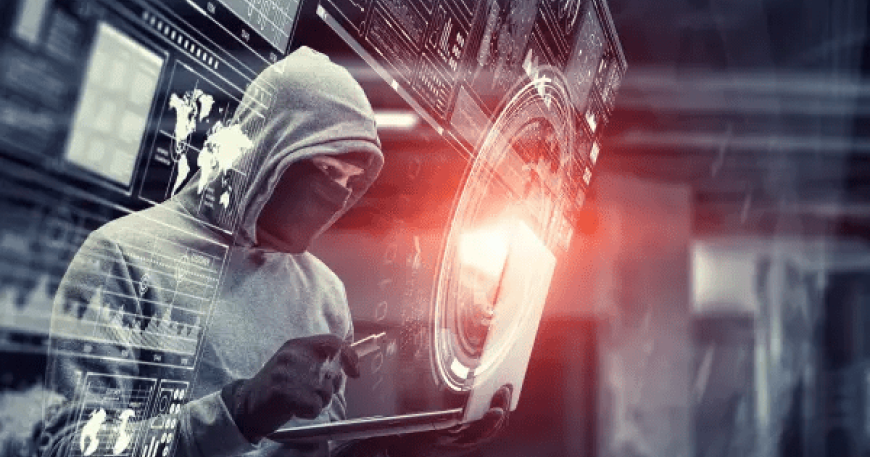What Is The Dark Web And Cyber Crime?
In this article, we will highlight the potential threats that the dark web might pose to businesses and society as a whole, and how to prevent or solve them as well as informing us of the changes that need to happen to avoid the threats.
So what exactly is the dark web? According to a Kaspersky definition, “The dark web is the hidden collective of internet sites only accessible by a specialized web browser. It is used for keeping internet activity anonymous and private, which can be helpful in both legal and illegal applications. While some use it to evade government censorship, it has also been known to be utilized for highly illegal activity”. This makes it a haven for hackers, web snoopers, scammers and other unsavory elements looking to make use of the occasional confidential information leak.
But, whilst it is nice to know that the dark web is somewhat safe for now, as more and more bad guys unselfishly give away their hand to the “dark” side, there is the danger that some of these unsavory individuals will use the anonymity provided by the dark web to steal information from certain individuals. *note: I’ve used dark web as the main topic, the dark web is somewhat safe compared to the generalised internet.*
For that reason, it is useful to have some basic knowledge about how the “open” internet works in order to avoid becoming a victim of such crimes.
There are some very important rules to follow when you receive an email requesting information from a seller or customer for instance:
If you have not contacted the seller or customer yourself and you are requested to send some money somewhere else, then it is probably a scam and so does not constitute credit card fraud if the seller asks for a half or full payment in advance.
If you are sent a bill, then it is a serious warning that formal charges will be made to you for a long period of time.
If you are asked to give out your personal information (e.g. credit card, internet account, etc) by an illegitimate website – then the website is probably collecting details from you without your knowledge and is probably taking unsolicited steps to extract information from you.
Sites that advertise using explicitly fake searches such as eBay, PayPal, or Amazon. These will most likely also ask you to make payments to them in order to get this information from you.
So, all in all, collecting all of your data in one place and making it accessible to a single entity seems like it is not only a potential security threat but could be illegal. Needless to say, don’t do it.
The next question is, where is all this information stored? If you’re used to having “multiple accounts” in your browser, then you can be confronted with the problem of how to get rid of the information. There is no way you can get rid of every bit of data in your “public” directory, though not every bit is going to be harmful.
Let’s look at some examples:
- Some dating sites include lots of information about who you were in the past and what you are doing now.
- Some dating sites make it clear that they search for partners who have similar interests.
- Some dating sites make it clear that they feature people according to their ages.
- Some dating sites have age requirements for those using the service.
How do you think a person using your site would be able to link through all these chronological filters? Even if you could eliminate all links from your search engine, you couldn’t test how good the search results would be until you use them for real.
Also, in the real world, almost all links to sites will be broken links – some of them are bad (or maybe even malicious). It happens that way.
But on the internet, nobody is responsible for their own site. You can’t just call up your ISP and tell them to drop you and then close every single loophole they had on the way. That would be unfair, wouldn’t it?
The right way to handle this is to do something about it. Many people have many different opinions about everything and since they are not responsible for their site, they can’t do anything about it.
I understand and I agree that this is the internet, and anything that is put on the internet is going to be seen by many people – by today, some people, and by tomorrow, some people. Let the buyer beware.
Causes for the threat of cyber crime
Incognito and unidentified
The internet is neither here nor there. Since there is no specific legislation, anytime, anywhere, anyone can find a way to commit any kind of theft. However, there are many tools that can make it harder for people to commit theft, including encryption, redirection, security, encryption advancement and other application developers have developed entire categories of theft that have been reduced.
Quality of data is becoming an issue
As long as there is a demand for valuable data, criminals will have solutions to get to that data. Quality of data in the stolen data is of paramount importance since this touches on almost all aspects of a company’s business.
Business
Since online transactions involve real-world assets, a company’s business is represented by one or more of the physical assets: cash, electronic, optical, information systems, and audit trails. The quality of data that gets stolen must be degraded for a successful attack to take place. This can be in the form of damaging data that gets sent from an employee’s computer or it can be through actively collecting confidential information that the company claims it doesn’t have.
Tools for attack
The tools that were developed to attack are now available to all interested parties. Having access to the database of addresses, credit card numbers, and other data that was stolen, the attackers are well prepared to do what they wish with the data. Tools for attack include:
- Key loggers
This is the most common tool for stealing data. With this tool, remotely monitor the keystrokes that a user makes on the computer. When the keystrokes are typed, the attacker can view the letters and numbers being sent to the computer and then use this information to steal your information. - Hacking tools
These tools allow a user to gain remote access to the computer and then execute malicious codes on the computer. These tools can allow a user to install viruses, worms, or Trojan horses on the computer. Once this virus infection is done, the attacker can use this platform to execute his or her malicious codes that may include stealing user information, extracting confidential data, and even deleting files on the computer. - Spam tools
This tool is used to deliver unsolicited emails and bulk spam messages. It can also be used to send links to other sites that contain malicious codes or HTML. These tools are also equipped with features that enable them to evade any spam protection product installed on a user’s computer. - Phishing tools
This tool is used to deceive computer users into thinking that they are sent by a legitimate organization. By doing this, you will have to provide account information and passwords to the thieves. They can then use this information to steal your personal data. - Data Miner
This tool is used to harvest and collate user’s data. Then it is used to pay the user for his or her information. Once you have paid for your data, the attacker can use this data to make online purchases using your credit card information. Thus, you become vulnerable to such attacks even though you have protected your computer with a strong password.
Conclusion
We have highlighted the potential threats that the dark web might pose to businesses and society as a whole, and how to prevent or solve them as well as informing us of the changes that need to happen to avoid the threats.
The dark web is a haven for hackers, web snoopers, scammers and other unsavory elements looking to make use of the occasional confidential information leak.
But, whilst it is nice to know that the dark web is somewhat safe for now, as more and more bad guys unselfishly give away their hand to the “dark” side, there is the danger that some of these unsavory individuals will use the anonymity provided by the internet to steal information from certain individuals.
If you are asked to give out your personal information (e.g. credit card, internet account, etc) by an illegitimate website – then the website is probably collecting details from you without your knowledge and is probably taking unsolicited steps to extract information from you.These tools allow a user to gain remote access to the computer and then execute malicious codes on the computer.
Once this virus infection is done, the attacker can use this platform to execute his or her malicious codes that may include stealing user information, extracting confidential data, and even deleting files on the computer.
They can then use this information to steal your personal data.
This tool is used to harvest and collate user’s data.
Once you have paid for your data, the attacker can use this data to make online purchases using your credit card information.








